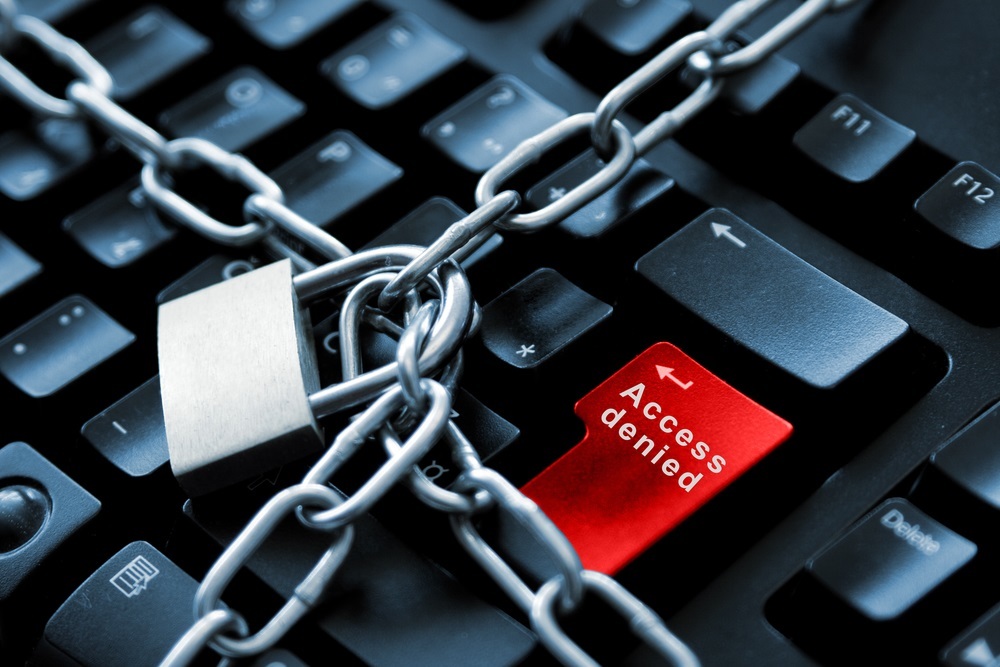The information that is contained on your business or personal electronic devices, has marketable value to your competitors, and to hackers who seek data for criminal use, including identity theft. What are the best protocols and advice that cyber security professionals recommend for executives, to help protect costly data leaks? We provide five steps that every C-Level executive should consider, and implement daily.
- Accepted Use Contracts
Train your staff to adhere to strict cyber security protocols, when using business devices that may contain sensitive information. Accepted Use Contracts are signed by employees, after cyber security training, which cover all company-issued devices, including smartphones, desktop computers, laptops and tablets.
Best practice in most corporate environments, dictates that the accepted use contracts with each employee be renewed on an annual basis, for compliance.
- Use Advertisement Blockers to Reduce Malware
Did you know that advertisements that pop up, while browsing articles or other online content, are a high risk for exposing your personal devices, and data to third-party breach? Unfortunately, some sites may not allow users to browse content, while having advertising blockers in place, and executives need to weigh the risk against their need to access the information.
If you enjoy business articles, subscribers can read content on virtually any magazine in a secure way that does not compromise sensitive information. Subscription based online periodicals do allow in many cases, for users to browse while having advertising blockers in place.
Android users can consult this article, for some of the most highly rated free, and paid ad-blocking software for smartphones. Apple iOS users can use this 2017 resource, for reviews and advice on apps that help promote data security, while accessing information on mobile devices.
- Encrypt All Confidential Data and Use Only Secure Servers and Storage
The 2012 data hack of Dropbox, sent professionals worldwide into a panic. It is important to remember that most free (and some paid) cloud storage devices, do not offer encrypting services. The data, including pictures, spreadsheets and documents, are susceptible to being hacked, any time the cloud storage service becomes a target for attack. Just because it is password protected, does not mean it is ever safe online.
Protocols have to be in place, to protect sensitive information from competitors (who can access data for sale on ‘The Dark Web’). Corporate policies may restrict the storage of important information and documents to secured servers, which is what IT security experts recommend. Intranets can be equipped with secure areas for virtually any amount of information, in an environment that can be monitored for suspicious activity, by the corporate IT security.
- Update Your Computer and Personal Device Frequently
Does it seem as though your laptop, tablet or smartphone always need an update, when you are at your busiest moment of the day or week? You would not be the first professional to simply ignore security update requests, because of the inconvenience of being shut-down or disconnected from your device.
Security updates are essential to securing all the devices you use, against malware attacks and phishing. Every time a new threat is found and registered, software providers build and release a new patch that helps to protect your device against malicious security breaches, and identity theft. When you consider the sensitive information that most executives contain on personal devices, including notes, files and even confidential contact information (and the legal cost of a negligent breach), it’s worth your time and effort to unplug, and update when prompted to do so.
- Lock Down Your Smartphone with Add-On Protection
Ensure that you are constantly updating your smartphone, whenever security updates are available. Apple introduced a new 6-digit passcode requirement, to improve security on iPhone’s, and both Apple and Google offer a “find my device” service, that can help executives track down a missing or stolen smartphone, before a data breach can occur.
Android users have a similar service through Google, that allows owners to make a missing phone ring, to draw attention to a thief, or to help recover a smartphone that has been simply misplaced. Android smartphone users can also remotely erase all data on their phone, a benefit and reassurance for busy executives.
Corporate executives who may not grace the cover of Forbes, are still a highly coveted target by both competitors, and criminals, who can earn income by selling sensitive information. The average CEO or corporate executive has enough information on their personal devices, to substantially harm the organization through data breach, and from information privacy fines and other legal action.






